Jean-Philippe Tremblay, Orchestre de la francophonie - Beethoven Live: 9 Symphonies (2010)
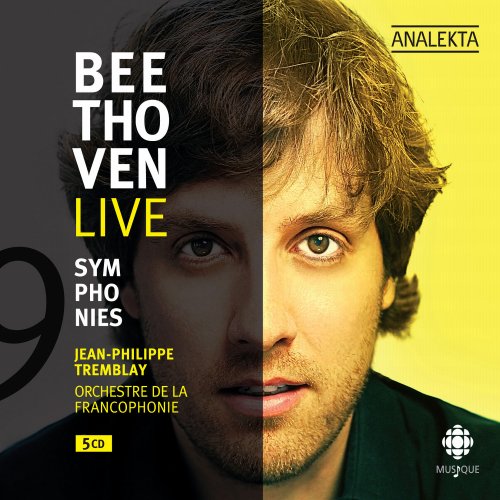
Artist: Jean-Philippe Tremblay, Orchestre de la francophonie
Title: Beethoven Live: 9 Symphonies
Year Of Release: 2010
Label: Analekta
Genre: Classical
Quality: FLAC (tracks)
Total Time: 05:46:40
Total Size: 1.6 Gb
WebSite: Album Preview
Tracklist: Title: Beethoven Live: 9 Symphonies
Year Of Release: 2010
Label: Analekta
Genre: Classical
Quality: FLAC (tracks)
Total Time: 05:46:40
Total Size: 1.6 Gb
WebSite: Album Preview
CD 1
1. Symphony No. 1 In C Major, Op. 21: I. Adagio molto – Allegro con brio 9:07
2. Symphony No. 1 In C Major, Op. 21: II. Andante cantabile con moto 5:53
3. Symphony No. 1 In C Major, Op. 21: III. Menuetto (Allegro molto e vivace) 4:07
4. Symphony No. 1 In C Major, Op. 21: IV. Finale: Adagio – Allegro molto e vivace 5:52
5. Symphony No. 3 "Eroica" In E Flat Major, Op. 55: I. Allegro con brio 15:55
6. Symphony No. 3 "Eroica" In E Flat Major, Op. 55: II. Marcia funebre (Adagio assai) 14:18
7. Symphony No. 3 "Eroica" In E Flat Major, Op. 55: III. Scherzo (Allegro vivace) 5:29
8. Symphony No. 3 "Eroica" In E Flat Major, Op. 55: IV. Finale (Allegro molto – Poco Andante - Presto) 11:31
9. Symphony No. 2 In D Major, Op. 36: I. Adagio – Allegro con brio 11:50
10. Symphony No. 2 In D Major, Op. 36: II. Larghetto 9:50
11. Symphony No. 2 In D Major, Op. 36: III. Scherzo (Allegro) 4:18
12. Symphony No. 2 In D Major, Op. 36: IV. Allegro molto 6:28
13. Symphony No. 4 In B Flat Major, Op. 60: I. Adagio. Allegro vivace 10:47
14. Symphony No. 4 In B Flat Major, Op. 60: II. Adagio 9:20
15. Symphony No. 4 In B Flat Major, Op. 60: III. Menuetto. Allegro vivace 5:41
16. Symphony No. 4 In B Flat Major, Op. 60: IV. Allegro non troppo 7:05
17. Symphony No.5 In C Minor, Op. 67: I. Allegro con brio 6:45
18. Symphony No.5 In C Minor, Op. 67: II. Andante con moto 9:14
19. Symphony No.5 In C Minor, Op. 67: III. Allegro (attacca:) 5:01
20. Symphony No.5 In C Minor, Op. 67: IV. Allegro 10:51
CD 2
1. Symphony No.6 In F Major “Pastoral”, Op. 68: I. Erwachen heiterer Empfindungen bei der Ankunft auf dem Lande (Awakening Of Happy Feelings On Arrival In The Country) - Allegro ma non troppo 12:16
2. Symphony No.6 In F Major “Pastoral”, Op.68: II. Szene am Bach (By the brook) Andante molto mosso 12:11
3. Symphony No.6 In F Major “Pastoral”, Op.68: III. Lustiges Zusammensein der Landleute (Joyous gathering of country folk) Allegro (attacca:) 5:11
4. Symphony No.6 In F Major “Pastoral”, Op.68: IV. Gewitter. Sturm (Storm) Allegro (attacca:) 3:54
5. Symphony No.6 In F Major “Pastoral”, Op.68: V. Hirtengesang. Frohe und dankbare Gefuhle nach dem Sturm (Shepherd’s song;happy and thankful feelings after the storm) Allegretto 9:28
6. Symphony No. 7 In A Major, Op. 92: I. Poco sostenuto – Vivace 13:50
7. Symphony No. 7 In A Major, Op. 92: II. Allegretto 8:30
8. Symphony No. 7 In A Major, Op. 92: III. Presto 9:24
9. Symphony No. 7 In A Major, Op. 92: IV. Allegro con brio 9:14
10. Symphony No. 8 In F Major, Op. 93: I. Allegro vivace e con brio 9:44
11. Symphony No. 8 In F Major, Op. 93: II. Scherzando: Allegretto 4:03
12. Symphony No. 8 In F Major, Op. 93: III. Tempo di Menuetto 5:39
13. Symphony No. 8 In F Major, Op. 93: IV. Allegro vivace 8:10
14. Symphony No.9 In D Minor “Choral”, Op.125: I. Allegro ma non troppo,un poco maest s 15:22
15. Symphony No.9 In D Minor “Choral”, Op.125: II. Molto vivace 13:30
16. Symphony No.9 In D Minor “Choral”, Op.125: III. Adagio molto e cantabile 12:40
17. Symphony No.9 In D Minor “Choral”, Op.125: IV. Presto 24:13
Performers:
Marie-Josée Lord (soprano)
Geneviève Couillard Després (mezzo)
Guy Bélanger (tenor)
Étienne Dupuis (baritone)
Orchestre et Choeur de la Francophonie
Jean-Phillipe Tremblay
Conductor Jean-Philippe Tremblay leads the Orchestre de la Francophonie on a complete Beethoven symphonies cycle. Recorded during 4 live concerts in Quebec City’s Palais Montcalm, the young musicians delivered a fresh and heartfelt performance of the staple of the orchestral repertoire.
Ludwig van Beethoven is without a doubt the incarnation of pure romanticism. A revolutionary both in his approach to the musical and the social, he was a model citizen of the Enlightenment: a musician who was free, open and independent. His work, bearing the stamp of passion, impetuousness, fraternity, love, and above all integrity, communicates a host of emotions that leave no soul indifferent. His ethical values are of striking relevance to our present society, more than 200 years later. His desire to be the work, the creative genius, takes us closer to the concept of the universal creator, bringing out love and the search for the absolute. No compromise can be made with Beethoven’s music. It is the bearer of emotions and a humanist ideal which calls for transcending the self in order to make room for a universal and generous energy.
Beethoven is, for me, the greatest among the greats: the liberator, the guide. To interpret his music is one of the most incredible experiences that can be granted a musician. I have boundless respect and total admiration for this genius. It is in this spirit that my colleagues of the Orchestre de la Francophonie and myself have approached his music.
The influence of musicological research undertaken in the last two decades by specialists of the baroque and classical periods cannot be overlooked. Consequently, it is our duty to ask ourselves about the tempi, the articulations, the attacks, the use of vibrato of course, and the effects known as more romantic. With Beethoven, it is impossible to premeditate these factors of interpretation, as the text itself gives all the indications necessary for the shaping of a sound and energetic, but above all, human musical idea. Is it the right one? No one, except ‘the master’ can answer that. We can, however, assure you that it comes directly from our hearts and that we offer it with great humility.
Ludwig van Beethoven is without a doubt the incarnation of pure romanticism. A revolutionary both in his approach to the musical and the social, he was a model citizen of the Enlightenment: a musician who was free, open and independent. His work, bearing the stamp of passion, impetuousness, fraternity, love, and above all integrity, communicates a host of emotions that leave no soul indifferent. His ethical values are of striking relevance to our present society, more than 200 years later. His desire to be the work, the creative genius, takes us closer to the concept of the universal creator, bringing out love and the search for the absolute. No compromise can be made with Beethoven’s music. It is the bearer of emotions and a humanist ideal which calls for transcending the self in order to make room for a universal and generous energy.
Beethoven is, for me, the greatest among the greats: the liberator, the guide. To interpret his music is one of the most incredible experiences that can be granted a musician. I have boundless respect and total admiration for this genius. It is in this spirit that my colleagues of the Orchestre de la Francophonie and myself have approached his music.
The influence of musicological research undertaken in the last two decades by specialists of the baroque and classical periods cannot be overlooked. Consequently, it is our duty to ask ourselves about the tempi, the articulations, the attacks, the use of vibrato of course, and the effects known as more romantic. With Beethoven, it is impossible to premeditate these factors of interpretation, as the text itself gives all the indications necessary for the shaping of a sound and energetic, but above all, human musical idea. Is it the right one? No one, except ‘the master’ can answer that. We can, however, assure you that it comes directly from our hearts and that we offer it with great humility.
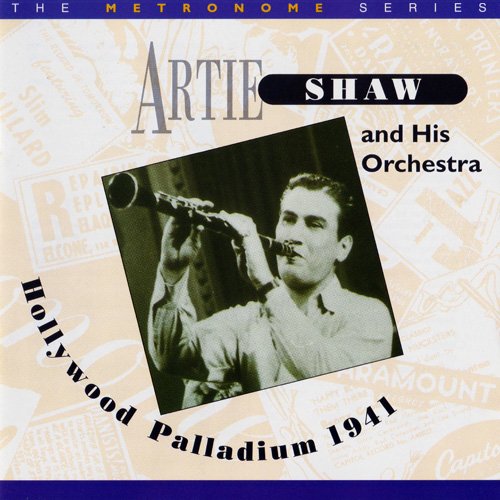
![Kannon - ...in a Sea of Fire (2026) [Hi-Res] Kannon - ...in a Sea of Fire (2026) [Hi-Res]](https://img.israbox.com/img/2026-02/06/031z27045ersqlp1m4v7qos7b.jpg)
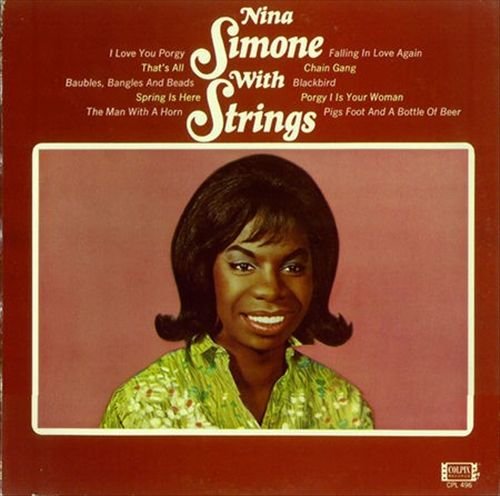

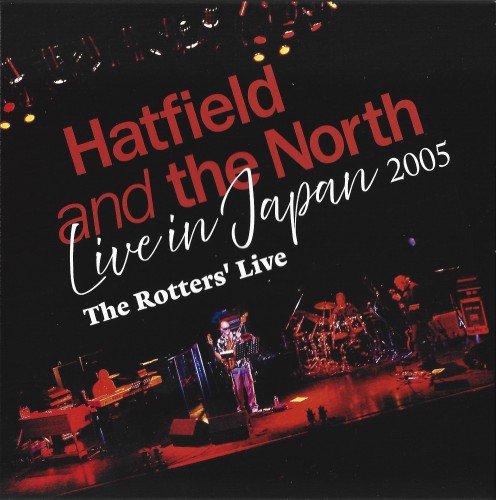
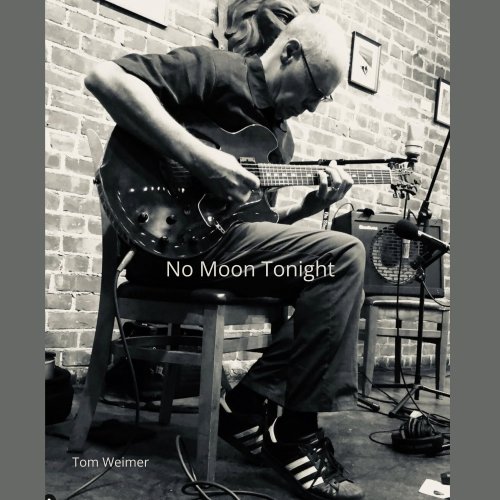
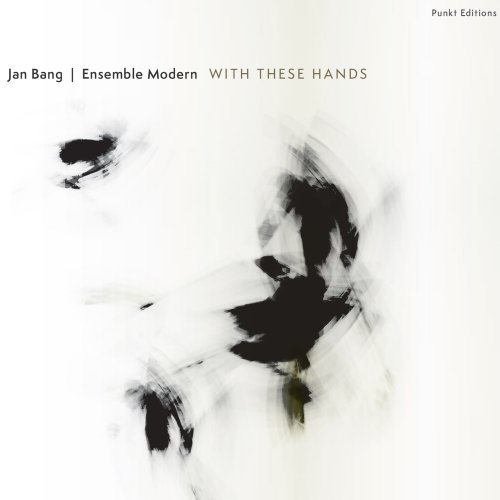
![Robert Jukic - Res Publica (2023) [Hi-Res] Robert Jukic - Res Publica (2023) [Hi-Res]](https://img.israbox.com/img/2026-02/09/mklto26c4c319bic6rmpb8kyz.jpg)
![Tyshawn Sorey - Monochromatic Light (Afterlife) (2026) [Hi-Res] Tyshawn Sorey - Monochromatic Light (Afterlife) (2026) [Hi-Res]](https://img.israbox.com/img/2026-02/09/o5oae6dg6j9xnkhwodjfrvr5v.jpg)